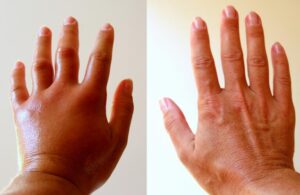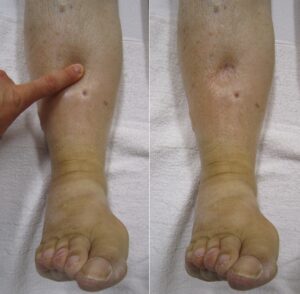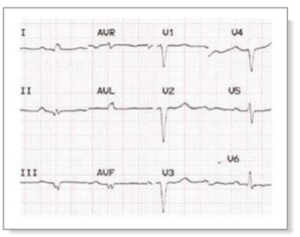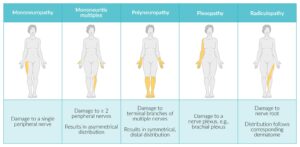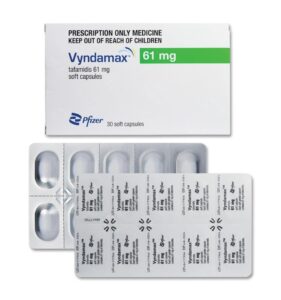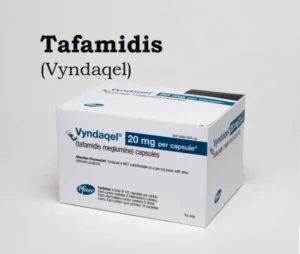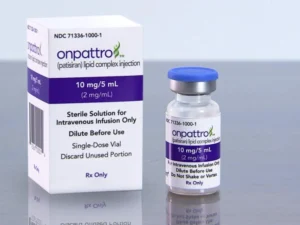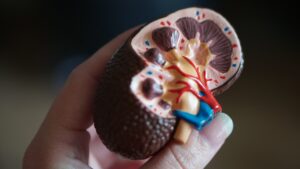Hereditary ATTR Amyloidosis
Chest Pain (Cardiac Amyloidosis)
Chest pain is a frequent symptom in patients with cardiac amyloidosis (CA) and is associated with a more advanced cardiac impairment. [source: International Journal of Cardiology]
Shortness of breath when lying flat (Orthopnea)
People with more severe heart failure may experience shortness of breath when they lie down. The medical term for this symptom is orthopnea (say “or-THAWP-nee-uh”). The severity of this symptom usually depends on how flat you are lying—the flatter you lie, the more you feel short of breath.
Fluid Swelling (Peripheral Edema) hands, legs or feet
If the amyloidosis affects the kidneys, their ability to filter the blood becomes impaired. Protein leaks from the blood into the urine. The loss of protein from the blood can cause fluid to leak out of the blood vessels, resulting in swelling in the feet, ankles and calves.
Low QRS voltages (LQRSVs) (Cardiac Amyloidosis)
Typical ECG of a patient with cardiac AL amyloidosis showing low QRS voltages in the limb leads and pseudoinfarction pattern in the chest leads. (from Updates in Cardiac Amyloidosis: A Review; Banypersad S et al; J Am Heart Assoc 2012)
Tingling Sensation in the Hands and Feet (Amyloid Neuropathy)
Peripheral neuropathy is a common manifestation of AL amyloidosis, and the incidence of peripheral neuropathy in AL amyloidosis varies from 9.6 to 35% (3–5). The typical pattern of amyloid neuropathy is symmetrical, length-dependent, lower-limb predominant, slowly progressing polyneuropathy, with severe pain. [source: NIH]
- NIH: Light-Chain Amyloidosis With Peripheral Neuropathy as an Initial Presentation
- Video: Neurological Manifestations of Amyloidosis
- Light-Chain Amyloidosis With Peripheral Neuropathy as an Initial Presentation
- Video: ARC Talks: Amyloid Neuropathy Burden and Management
- Video: Peripheral Neuropathy and Amyloidosis – Part 01
- Video: Peripheral Neuropathy and Amyloidosis – Part 02
Muscle Weakness
Sexual Dysfunction
Loss of Appetite (Gastrointestinal Amyloidosis)
Nausea & Vomiting
Fatigue (Cardiac Amyloidosis / General Organ Stress)
When amyloid proteins overwhelm your organs, you may not have the energy and strength you once had. Amyloidosis can cause severe, unusual fatigue. You may not feel up to doing the activities you once enjoyed. You may even need frequent naps during the day. [source: healthline]
Low Blood Pressure
Carpal Tunnel Syndrome (Amyloid Neuropathy)
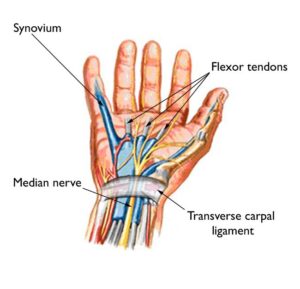
In patients undergoing surgery for idiopathic CTS, a recent study identified amyloidosis by tenosynovial biopsy in 10.2% of men older than 50 years and women older than 60 years; all positive patients had bilateral symptoms. [source: NIH]
Tafamidis (Vyndamax™) – Treats Cardiomyopathy
Tafamidis is an oral medication for treating cardiomyopathy and peripheral neuropathy due to transthyretin amyloidosis (ATTR). It is a transthyretin stabilizer and has been shown to reduce disease progression and mortality significantly.
Vutrisiran (Amvuttra®) – Treats polyneuropathy
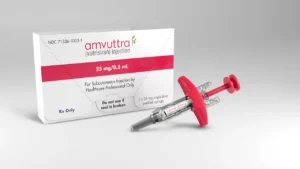
In an 18-month clinical study, AMVUTTRA-treated patients showed significant improvement in nerve function and quality of life at 9 months and continued to improve throughout the study, compared with those who received placebo in a similar study. [source: NIH]
- Efficacy and safety of vutrisiran for patients with hereditary transthyretin-mediated amyloidosis with polyneuropathy: a randomized clinical trial
- How Amvuttra helps ATTR-PN Patients
- Alnylam Assist Program
- Alnylam Assist Program FAQ
- Alnylam Case Managers: 1 (833)256-2748 Monday–Friday, 8am–6pm
- Invitae Free genetic screening for ATTRv
- VIDEO: CVS Specialty services for patients taking Amvuttra
Tafamidis Meglumine (Vyndaqel®) Treats Cardiomyopathy
Both Vyndaqel and Vyndamax contain the same active ingredient called tafamidis. The difference between Vyndaqel and Vyndamax lies in the form of tafamidis they contain. Vyndaqel contains the micronized meglumine salt of tafamidis, while Vyndamax contains the free acid form of tafamidis
Inotersen (Tegsedi®) – Treats polyneuropathy
TEGSEDI is the first and only self-administered injection for the polyneuropathy of hATTR amyloidosis in adults. Regular lab monitoring of platelet count and renal liver function is required during treatment with TEGSEDI.
- Website
- Fact Sheet
- Connect with your dedicated Nurse Case Manager and Team TEGSEDI Mentor by contacting AkceaConnect@sobi-psp.com or at 1-866-AKCEATX (1-866-252-3289)
Patisiran (Onpattro®) – Treats polyneuropathy
Patisiran is the first-ever RNA interference drug consisting of short, double-stranded interfering ribonucleic acid (siRNA) encapsulated in a lipid nanoparticle and targeted to inhibit hepatic synthesis of transthyretin, both the wild-type and mutant. [source: Pubmed]
- Pubmed: Patisiran, First Global Approval
- Onpattro Website
- Fact Sheet
- Alnylam Assist Program
- Alnylam Assist FAQs
- Alnylam Case Managers: 1 (833)256-2748 Monday–Friday, 8am–6pm
- Invitae Free genetic screening for ATTRv
- VIDEO: CVS Specialty services for patients taking Onpattro
Heart Transplant
Care Team Basics
Studies have found that patients who receive care from a coordinated care team have better health outcomes, including lower rates of hospitalization and mortality. They also have higher rates of satisfaction with their care.
A care team is a group of healthcare professionals who work together to provide care for a patient. The care team may include doctors, nurses, therapists, social workers, and other specialists. The team works together to develop a plan of care and coordinate services.
Care Team Coordinator
A care coordinator is a health care professional responsible for managing patient care by monitoring treatment plans, educating patients on their conditions, and connecting them to relevant health care providers.
Cardiologist (Heart)
A cardiologist is a physician who’s an expert in the care of your heart and blood vessels. They can treat or help you prevent a number of cardiovascular problems. They can also specialize in specific areas, such as abnormal heart rhythms, heart failure or heart problems you’ve had since birth. [source: Cleveland Cllinic]
Nephrologist (Kidneys)
A nephrologist is a medical doctor who specializes in kidney care and treating diseases of the kidneys. The term nephrologist comes from the Greek word “nephros”, which means kidney or renal and “ologist” refers to someone who studies. Nephrologists are also called kidney doctors.
Neurologist (Brain & Nervous System)
A neurologist is a medical doctor with specialized training in diagnosing, treating, and managing disorders of the brain and nervous system including, but not limited to, Amyloidosis, Alzheimer’s disease, amyotrophic lateral sclerosis (ALS), concussion, epilepsy, migraine, multiple sclerosis, Parkinson’s disease, and stroke.
Psychologist (Emotional Wellbeing)
A psychologist is a mental health professional who uses psychological evaluations and talk therapy to help people learn to better cope with life and relationship issues and mental health conditions. [source: Cleveland Clinic]
Social Worker
Social workers assist a range of patient populations and provide services in areas including mental health conditions and addictions, chronic disease, children and youth illnesses, geriatrics illnesses, grief, trauma, parenting issues, palliative care, dementia and other neurological issues, financial stressors, housing issues and a broad range of other general psychosocial issues (Ashcroft et al. 2018; McGregor et al. 2018; Sverker et al. 2017).
ATTR Clinical Trials
Research
Stay Up To Date:
Featured Resources

Caregiver Support : Taking care of yourself




